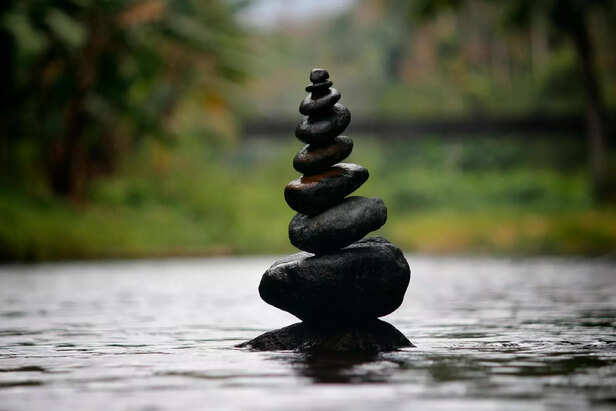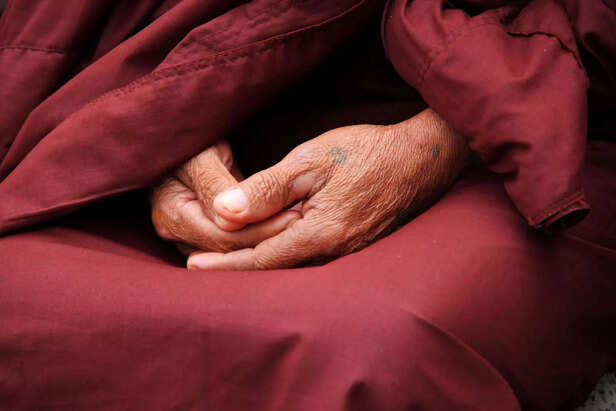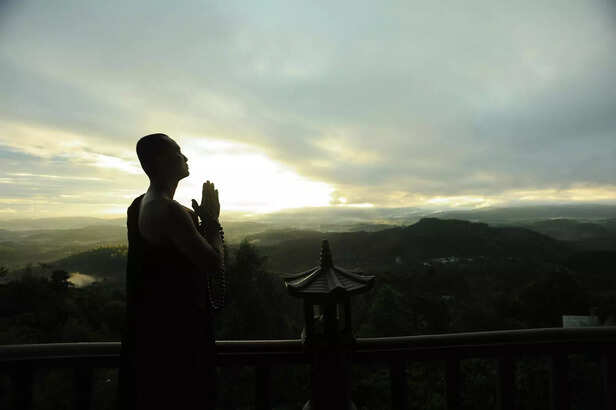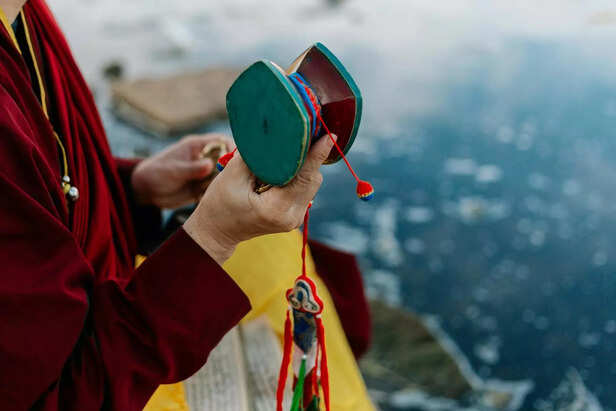I Stayed in a Buddhist Monastery—Here’s How It Transformed Me
Riya Kumari | Apr 03, 2025, 15:40 IST
Monastery
( Image credit : Pexels )
You know that thing where life gets so loud that even your morning coffee is screaming at you? Yeah. That was me. Drowning in notifications, existential dread, and a strong belief that I could “fix” myself if I just bought the right scented candle. Naturally, I did the only logical thing: I packed up and ran away to a Buddhist monastery. Now, before you picture me draped in saffron robes, levitating with a serene smile—pause. This was less “Eat, Pray, Love” and more “Sit, Breathe, Panic.”
I arrived at the monastery with a suitcase full of expectations. I was looking for something—peace, perspective, maybe even a mystical, movie-montage kind of transformation. Instead, I found something unexpected: silence. Not just the absence of noise, but a silence so vast that it made me realize how loud my life had become. We mistake movement for progress, noise for meaning, busyness for purpose. I had spent years filling every quiet moment with distractions—scrolling, binge-watching, refreshing news feeds, jumping from one thought to another like a restless bird. But in the monastery, there was nowhere to run. No notifications, no conversations, no background music. Just me, and the uncomfortable weight of my own mind.

At first, the silence was unbearable. My mind, deprived of its usual noise, panicked. It dug up every embarrassing memory, every unfinished thought, every fear I had neatly avoided. But here’s the thing about discomfort: it doesn’t go away just because you ignore it. In fact, the more you resist, the more it tightens its grip.
Meditation wasn’t just about sitting still—it was about facing myself. No distractions, no escape routes. And slowly, I started seeing the pattern: my mind wasn’t chaotic because of my circumstances. It was chaotic because I had never trained it to be still.

Imagine your mind as a room. Most of us live in a room so cluttered with old thoughts, fears, and judgments that there’s barely any space left to sit. But instead of cleaning, we just keep piling more things in—more entertainment, more tasks, more worries—until we forget what an empty room even looks like.
Monastic life forces you to clean the room. You sit in it, notice the mess, and little by little, start clearing things out. Not by force, not by willpower, but by attention. The more I watched my thoughts instead of reacting to them, the lighter they became.

One of the biggest shocks was the simplicity of monastic life. The monks didn’t plan their days down to the last detail. They woke up, meditated, did their chores, ate mindfully, studied, and repeated. There was no grand strategy, no obsession with productivity, no anxious planning for the future.
At first, it seemed rigid, but then I saw the freedom in it. They weren’t controlled by their desires, their anxieties, or the relentless need to be “someone.” They simply lived. Meanwhile, most of us spend our lives chasing control—of our careers, our relationships, even our emotions—only to realize that control is the one thing we never truly have. When I let go of the need to dictate every outcome, something shifted. Life became less of a struggle and more of a flow. Instead of trying to force moments to go my way, I started meeting them as they came.

The most profound thing I learned wasn’t from a scripture or a meditation session. It was from a simple act: washing dishes. One evening, as I scrubbed a bowl, I noticed something—I was actually there. Not lost in thought, not rushing to finish. Just feeling the water, hearing the gentle clink of ceramic, watching the soap swirl.
For the first time in a long time, I wasn’t living in the past or planning the future. I was simply here. And that’s when I understood: this is life. Not some grand moment waiting down the road. Not a future where everything is perfect. Just this—washing a dish, feeling the water, breathing.
I didn’t leave the monastery as a different person. I still have bad habits. I still overthink. I still crave junk food at odd hours. But something is different. Now, when I feel overwhelmed, I know that I don’t need to escape—I need to be still. When I catch myself spiraling into the future, I remind myself that life is happening now. And when I feel like I’m losing control, I smile, because I finally understand: I never had control to begin with. Maybe you don’t need to stay in a monastery to learn this. Maybe you just need to sit in a quiet room, breathe, and listen. Because in the silence, life finally starts speaking.
1. Discomfort Is the Doorway

Peace
( Image credit : Pexels )
At first, the silence was unbearable. My mind, deprived of its usual noise, panicked. It dug up every embarrassing memory, every unfinished thought, every fear I had neatly avoided. But here’s the thing about discomfort: it doesn’t go away just because you ignore it. In fact, the more you resist, the more it tightens its grip.
Meditation wasn’t just about sitting still—it was about facing myself. No distractions, no escape routes. And slowly, I started seeing the pattern: my mind wasn’t chaotic because of my circumstances. It was chaotic because I had never trained it to be still.
2. The Mind Is Like a Room

Meditation
( Image credit : Pexels )
Imagine your mind as a room. Most of us live in a room so cluttered with old thoughts, fears, and judgments that there’s barely any space left to sit. But instead of cleaning, we just keep piling more things in—more entertainment, more tasks, more worries—until we forget what an empty room even looks like.
Monastic life forces you to clean the room. You sit in it, notice the mess, and little by little, start clearing things out. Not by force, not by willpower, but by attention. The more I watched my thoughts instead of reacting to them, the lighter they became.
3. Control Is an Illusion

Pray
( Image credit : Pexels )
One of the biggest shocks was the simplicity of monastic life. The monks didn’t plan their days down to the last detail. They woke up, meditated, did their chores, ate mindfully, studied, and repeated. There was no grand strategy, no obsession with productivity, no anxious planning for the future.
At first, it seemed rigid, but then I saw the freedom in it. They weren’t controlled by their desires, their anxieties, or the relentless need to be “someone.” They simply lived. Meanwhile, most of us spend our lives chasing control—of our careers, our relationships, even our emotions—only to realize that control is the one thing we never truly have. When I let go of the need to dictate every outcome, something shifted. Life became less of a struggle and more of a flow. Instead of trying to force moments to go my way, I started meeting them as they came.
4. Presence Is the Only Place Where Life Happens

Monk
( Image credit : Pexels )
The most profound thing I learned wasn’t from a scripture or a meditation session. It was from a simple act: washing dishes. One evening, as I scrubbed a bowl, I noticed something—I was actually there. Not lost in thought, not rushing to finish. Just feeling the water, hearing the gentle clink of ceramic, watching the soap swirl.
For the first time in a long time, I wasn’t living in the past or planning the future. I was simply here. And that’s when I understood: this is life. Not some grand moment waiting down the road. Not a future where everything is perfect. Just this—washing a dish, feeling the water, breathing.
